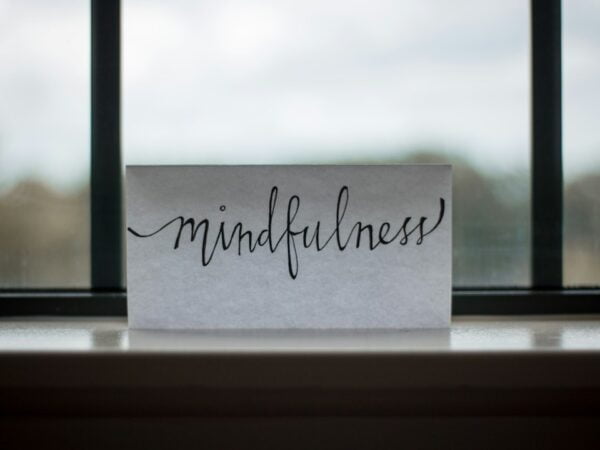
Finding Balance: Prioritizing Physical Health and Mental Well-being for a Fulfilling Life
In today’s fast-paced and demanding world, it can be easy to neglect our physical health and mental well-being. However, prioritizing both aspects of our health is crucial for living a fulfilling and balanced life. Physical health refers to the state of our body and its ability to function optimally, while mental well-being encompasses our emotional, psychological, and social well-being. By prioritizing both physical health and mental well-being, we can experience numerous benefits and prevent negative consequences.
Key Takeaways
- Prioritizing physical health and mental well-being is crucial for living a fulfilling life.
- Physical health includes exercise, nutrition, and sleep, while mental well-being involves managing stress and emotions.
- There is a strong link between physical health and mental well-being, with one affecting the other.
- Steps to improve physical health include regular exercise, a balanced diet, and adequate sleep.
- Steps to improve mental well-being include practicing mindfulness, seeking support, and engaging in activities that bring joy.
The Importance of Prioritizing Physical Health and Mental Well-being
Neglecting physical health and mental well-being can have serious consequences. When we neglect our physical health, we may experience a range of issues such as weight gain, chronic diseases, decreased energy levels, and a weakened immune system. Similarly, neglecting our mental well-being can lead to increased stress levels, anxiety, depression, and a decreased ability to cope with life’s challenges.
On the other hand, prioritizing both physical health and mental well-being can lead to numerous benefits. When we take care of our physical health through regular exercise, proper nutrition, and adequate sleep, we can experience increased energy levels, improved mood, better cognitive function, and a reduced risk of chronic diseases. Prioritizing mental well-being through stress management techniques, self-care practices, and social support can lead to improved emotional resilience, increased happiness, better relationships, and enhanced overall well-being.
Understanding Physical Health
Physical health refers to the state of our body and its ability to function optimally. It encompasses various components such as cardiovascular fitness, muscular strength and endurance, flexibility, and body composition. Regular exercise is crucial for maintaining physical health as it helps improve cardiovascular fitness, build strength and endurance in muscles, increase flexibility, and maintain a healthy body weight.
In addition to exercise, proper nutrition is essential for physical health. A balanced diet that includes a variety of fruits, vegetables, whole grains, lean proteins, and healthy fats provides the necessary nutrients for our body to function properly. Adequate sleep is also crucial for physical health as it allows our body to repair and rejuvenate itself.
Understanding Mental Well-being
| Metrics | Definition |
|---|---|
| Depression | A mental health disorder characterized by persistently depressed mood or loss of interest in activities, causing significant impairment in daily life. |
| Anxiety | A mental health disorder characterized by feelings of worry, anxiety, or fear that are strong enough to interfere with one’s daily activities. |
| Stress | A physical, mental, or emotional response to a challenging or threatening situation that can cause physical or mental tension and strain. |
| Self-care | The practice of taking an active role in protecting one’s own well-being and happiness, especially during periods of stress or difficulty. |
| Mindfulness | A mental state achieved by focusing one’s awareness on the present moment, while calmly acknowledging and accepting one’s feelings, thoughts, and bodily sensations. |
Mental well-being refers to our emotional, psychological, and social well-being. It encompasses various components such as emotional resilience, self-esteem, positive relationships, and a sense of purpose in life. Stress management techniques are crucial for maintaining mental well-being as chronic stress can have detrimental effects on our mental health. Engaging in activities that promote relaxation and reduce stress, such as meditation, deep breathing exercises, and engaging in hobbies, can help improve mental well-being.
Self-care practices are also important for mental well-being. Taking time for ourselves and engaging in activities that bring us joy and relaxation can help reduce stress levels and improve overall well-being. Additionally, having a strong social support system is crucial for mental well-being. Building and maintaining positive relationships with friends, family, and community members can provide a sense of belonging and support during challenging times.
The Link Between Physical Health and Mental Well-being
Physical health and mental well-being are interconnected. When we prioritize our physical health through regular exercise, proper nutrition, and adequate sleep, we not only improve our physical well-being but also experience positive effects on our mental health. Exercise releases endorphins, which are known as “feel-good” hormones that can improve mood and reduce symptoms of anxiety and depression. Proper nutrition provides the necessary nutrients for brain function and can improve cognitive function and overall mental well-being. Adequate sleep allows our brain to rest and recharge, leading to improved mental clarity and emotional well-being.
Similarly, when we prioritize our mental well-being through stress management techniques, self-care practices, and social support, we can experience positive effects on our physical health. Chronic stress can have detrimental effects on our physical health, such as increased blood pressure, weakened immune system, and increased risk of chronic diseases. By managing stress effectively, we can reduce these negative effects and improve our physical health. Engaging in self-care practices and building positive relationships can also reduce stress levels and improve overall physical well-being.
Steps to Improve Physical Health

Improving physical health involves incorporating various lifestyle changes into our daily routine. Regular exercise is crucial for physical health and can be achieved through activities such as walking, jogging, swimming, cycling, or participating in sports. Aim for at least 150 minutes of moderate-intensity aerobic activity or 75 minutes of vigorous-intensity aerobic activity per week.
In addition to exercise, proper nutrition is essential for physical health. Focus on consuming a balanced diet that includes a variety of fruits, vegetables, whole grains, lean proteins, and healthy fats. Limit the intake of processed foods, sugary drinks, and unhealthy fats.
Adequate sleep is also important for physical health. Aim for 7-9 hours of quality sleep each night by establishing a regular sleep schedule, creating a relaxing bedtime routine, and creating a sleep-friendly environment.
Managing stress is another crucial aspect of improving physical health. Engage in stress-reducing activities such as meditation, deep breathing exercises, yoga, or engaging in hobbies that bring you joy and relaxation.
Steps to Improve Mental Well-being
Improving mental well-being involves incorporating various self-care practices into our daily routine. Take time for yourself each day to engage in activities that bring you joy and relaxation. This can include reading a book, taking a bath, practicing mindfulness or meditation, or engaging in hobbies that you enjoy.
Building a strong social support system is also important for mental well-being. Nurture positive relationships with friends, family, and community members by spending quality time together, engaging in meaningful conversations, and providing support to one another.
Managing stress effectively is crucial for mental well-being. Practice stress management techniques such as deep breathing exercises, meditation, or engaging in physical activities that help reduce stress levels.
Finding Balance: Combining Physical Health and Mental Well-being
Finding a balance between physical health and mental well-being is crucial for living a fulfilling life. It is important to integrate physical activity and self-care practices into our daily routine. This can be achieved by scheduling regular exercise sessions, setting aside time each day for self-care activities, and prioritizing activities that promote both physical and mental well-being.
For example, you can combine physical activity with self-care by going for a walk in nature, practicing yoga or tai chi, or engaging in a team sport that brings you joy and relaxation. By finding activities that you enjoy and that promote both physical health and mental well-being, you can achieve a balance between the two.
Overcoming Obstacles to Achieving Balance
There may be obstacles that prevent us from achieving a balance between physical health and mental well-being. Common obstacles include lack of time, lack of motivation, and external pressures. To overcome these obstacles, it is important to set realistic goals and prioritize our health and well-being.
Set aside specific time each day for physical activity and self-care practices. This can be as little as 10-15 minutes initially and gradually increase as you build momentum. Find activities that you enjoy and that fit into your schedule. Remember that any amount of physical activity and self-care is better than none.
Seeking professional help when needed is also important. If you are struggling with mental health issues or finding it difficult to prioritize your health, reach out to a healthcare professional or therapist who can provide guidance and support.
Living a Fulfilling Life through Prioritizing Physical Health and Mental Well-being
In conclusion, prioritizing both physical health and mental well-being is crucial for living a fulfilling and balanced life. Neglecting either aspect can have negative consequences, while prioritizing both can lead to numerous benefits. By understanding the components of physical health and mental well-being and taking practical steps to improve them, we can achieve a balance that allows us to live our best lives. Remember to set realistic goals, seek support when needed, and make your health and well-being a priority.
FAQs
What is physical health?
Physical health refers to the overall condition of the body, including its ability to perform daily activities, maintain proper functioning of organs and systems, and resist diseases and illnesses.
What is mental well-being?
Mental well-being refers to the state of a person’s emotional, psychological, and social health. It includes the ability to cope with stress, maintain positive relationships, and have a sense of purpose and meaning in life.
Why is physical health important?
Physical health is important because it affects every aspect of our lives, from our ability to work and perform daily activities to our overall quality of life. Good physical health can also help prevent chronic diseases and illnesses.
Why is mental well-being important?
Mental well-being is important because it affects our emotional and psychological health, which in turn affects our ability to cope with stress, maintain positive relationships, and achieve our goals. Good mental well-being can also help prevent mental health disorders.
How can physical health and mental well-being be balanced?
Physical health and mental well-being can be balanced by adopting healthy lifestyle habits such as regular exercise, healthy eating, getting enough sleep, managing stress, and seeking support when needed. It is also important to engage in activities that promote mental well-being, such as practicing mindfulness, socializing with friends and family, and pursuing hobbies and interests.


















